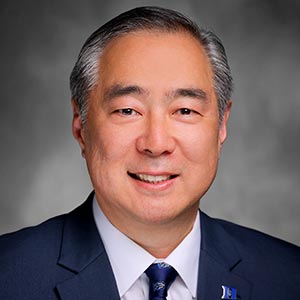2025 Vanderkooi Endowed Lectureship
32nd Annual Lectureship
February 7, 2025 | Time: TBA | TWU Dallas Campus
Michael Iwama, PhD, MSc, BScOT, is widely recognized for having developed the “Kawa Model” (‘Kawa’ is Japanese for ‘River’), the first substantial model of practice in the rehabilitation sciences developed outside the English-speaking world. The Kawa Model is now taught in over 700 health professions education programs internationally and used in practice across six continents. He has emerged as a very important and progressive thinker in the fields of occupational therapy and rehabilitation sciences worldwide.
- The lecture is open to OT practitioners and TWU OT students
- A panel session will follow the lecture.
- Registration is required.
Schedule: Coming Soon!
TWU does not provide CEU for this lecture. Licensees are responsible for documenting their continuing education. Be sure to check the OT Rules in Texas to verify that the activity falls under one of the categories of education in §367.2, Categories of Education. Licensees are responsible for choosing CE that meets requirements as per Chapter 367. [ptot.texas.gov/OT-Decision-
Speaker

Michael Iwama, PhD, MSc, BScOT
Michael Iwama, PhD, MSc, BScOT, is professor in the new occupational therapy doctorate division in the School of Medicine at Duke University. Prior to his appointment at Duke, he served as Dean of the School of Health and Rehabilitation Sciences, and Professor in the Department of Occupational Therapy, at MGH Institute of Health Professions.
Iwama is widely recognized for having developed the “Kawa Model” (‘Kawa’ is Japanese for ‘River’), the first substantial model of practice in the rehabilitation sciences developed outside the English-speaking world. The Kawa Model is now taught in over 700 health professions education programs internationally and used in practice across six continents. He has emerged as a very important and progressive thinker in the fields of occupational therapy and rehabilitation sciences worldwide.
Iwama draws on his rich experience of acculturating into Eastern and Western social spheres of experience to drive his profound and critical perspectives on culture and its intersections with theory and practice in the rehabilitation sciences.
A passionate and captivating communicator, Iwama regularly is invited to lecture to both U.S. and international audiences. Since his book, The Kawa Model: Culturally Relevant Occupational Therapy, was published in 2006, he has given over 350 invited national and international lectures and over 100 keynote and plenary addresses at scientific and professional conferences. He has more than 45 publications in both English and Japanese professional journals.
Iwama also is an adjunct professor in the Faculty of Medicine at the University of Toronto and holds similar adjunct professorial appointments at six universities in Canada, the United Kingdom, Australia, and Asia. Prior to arriving at the MGH Institute, he was professor and chair of the Department of Occupational Therapy at Augusta University, formerly the Medical College of Georgia.
Iwama completed advanced studies in Medical Anthropology from University of Leiden, Netherlands, and has earned a PhD in Sociology from Kibi International University in Japan, a MSc in Rehabilitation Sciences from University of British Columbia, a BSc in Occupational Therapy from University of British Columbia, and a BSc in Human Performance from the University of Victoria.
About the Lectureship
The Vanderkooi Endowed Lectureship was established in 1994 to honor the first program director of occupational therapy at Texas Woman’s University, Fanny B. Vanderkooi. It celebrates the School of Occupational Therapy’s legacy of commitment to vision, professional values, and leadership development in occupational therapy education, practice and research. The event is typically attended by more than 250 occupational therapy professionals, inclusive of students.
Page last updated 10:22 AM, October 10, 2024